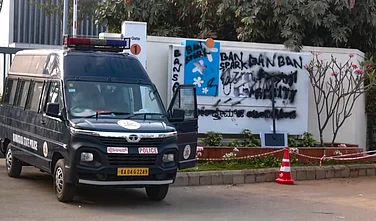Although politics and law are interwoven, the former can occasionally take precedence over the latter, particularly when it comes to prosecuting political figures. One such example is the increased involvement of the Enforcement Directorate (ED) in Tamil Nadu. The Directorate of Enforcement (ED) was given the authority to stop money laundering, seize the proceeds of crime, and confiscate assets under the Prevention of Money Laundering Act (PMLA) 2002. However, during the last several years, the ED has come to possess powers like those of a law enforcement agency, and it has frequently been charged with turning its attention to political rivals of the Union government.
The PMLA was passed as a sui generis law to combat money laundering through white-collar crimes, as has been maintained on several occasions. The act of projecting or asserting that the profits of crime are pristine property constitutes money laundering, as stated under Section 3 of the PMLA. A variety of crimes under the Indian Penal Code and other special legislation have been added to the PMLA Schedule as the foundation for the crime of money laundering. To put it another way, the commission of the predicate crime is a need in order to accuse someone of money laundering.
The ED authorities have the ability to call anyone suspected of money laundering and record statements under Section 50 of the PMLA. The Supreme Court ruled, however, that ED officials are not law enforcement personnel. In Vijay Madanlal Choudhary v. Union of India (2022), it was said that "the process envisaged by Section 50 of the PMLA is in the nature of an inquiry against the proceeds of crime and is not 'investigation' in the strict sense of the term for initiating prosecution."
Other differences exist between ED officials and the police. ED authorities begin with search procedures and begin their investigation with the goal of gathering materials and tracing the "proceeds of crime" by issuing summonses, whereas the police are required to register a First Information Report (FIR) for a cognisable offence before conducting an investigation. In contrast to a statement given to an ED authority, any statement made by an accused to the police is not admissible as evidence in court. The accused can obtain a copy of the FIR, but the Enforcement Case Information Report is rarely made available.
The arrest authority granted by Section 19 of the PMLA, which allows higher ED officials to detain anybody they have "reason to believe" is guilty of money laundering based on the evidence in their hands, was probably the subject of these phrases. The threat of being arrested by the ED is constantly real and present, especially in light of the strict requirements for the release of bail under Section 45 of the PMLA. Although the word "reason to believe" implies that the ED authorities must determine the need for the arrest and that such belief must pass the reasonableness test, this is not the case. As a result, this ought to be the standard that judges use to determine whether remand is necessary, yet they rarely do.
Unfortunately, a lot of the ED's authority has recently been exploited to make pre-trial arrests, which was formerly the responsibility of the police investigating the underlying offence. The CBI has historically been used to intimidate political opponents. As a result, the agency gained the moniker "caged parrot" and was condemned by many courts. The involvement of the nation's constitutional courts will determine whether the ED follows the same course or changes its strategy totally.
Over the last year or so, the ED has arrested Ministers of the Delhi government; former ministers of Shiv Sena, and many leaders and ministers from parties out of the BJP alliance, or who broke the alliance with BJP. Out of the 5,906 cases reported since 2005, the ED has only submitted chargesheets after finishing the investigation in 1,142 instances, despite the high-profile arrests. It is obvious that pre-trial arrests receive an excessive amount of attention compared to what happens thereafter. According to reports, 85% of the charges filed against politicians involve members of the opposition parties.
Leaving political animosity aside, this brings up another crucial point regarding the function and goal of the ED. The ED is intended to concentrate on recovering the proceeds of crime in order to disperse the money to victims, while the police investigating the predicate offence are authorized to arrest and seek custody of the accused. It's unclear if the ED was successful in doing this. In contrast, the Proceeds of Crime Act, of 2002, the equivalent law in the United Kingdom, focuses almost exclusively on the seizure of assets through specific civil actions.
If only parties affiliated with the Opposition are included in the scope of central agencies' investigations, it will be impossible to credit them with taking prompt action against corruption. Venality among political figures is a reality for some and is perceived negatively by everyone involved in public life. To earn the public's trust in their searches, raids, and arrests, authorities legally authorized to investigate and punish them must show that they are fair and unbiased.
(Kumar Kartikeya is a legal researcher based out of Delhi.)

























